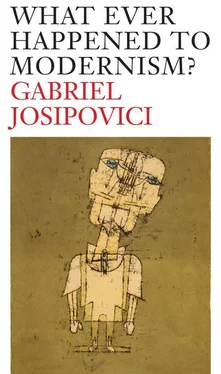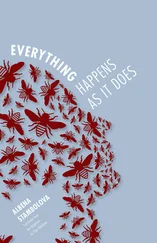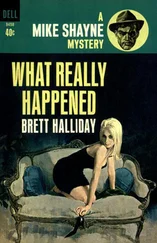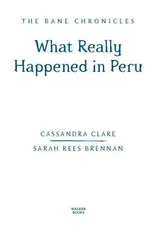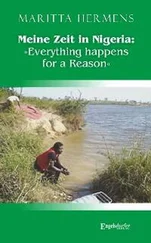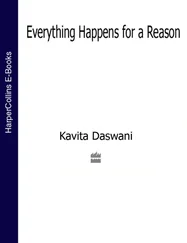Étant Donnés (i)
Fountain (i), (ii)
La Mariée mise à nu/Large Glass (i)
on photography (i)
turn to readymade (i), (ii), (iii)
Duffy, Eamon (i)
Duras, Marguerite (i)
L'Amante anglaise (i), (ii)
Dürer, Albrecht (i), (ii)
Melencolia I (i), (ii) , (iii)
St Jerome in his Study (i), (ii) , (iii), (iv)
Duthuit, Georges (i)
Duve, Thierry de see de Duve, Thierry
Eliot, T.S. (i), (ii), (iii), (iv), (v), (vi), (vii), (viii), (ix)
Four Quartets (i)
and loss in transition to Modern era (i)
‘The Love Song of J. Alfred Prufrock’ (i)
subversion of traditional form (i)
The Waste Land (i), (ii)
Emerson, Ralph Waldo (i)
Emin, Tracey (i)
endings see conclusions
England
English novel and false Modernism (i), (ii), (iii), (iv)
historical insularity (i), (ii)
responses to Modernism (i), (ii), (iii), (iv)
‘epic moment’ in Greek tragedy (i), (ii)
equality in post-Revolutionary order (i)
Euripides (i)
Iphigeneia in Aulis (i)
Iphigeneia in Tauris (i)
Orestes (i)
experience and nature in Wordsworth (i), (ii), (iii)
‘false friends’ of Modernism (i), (ii), (iii)
fashion and literature (i)
Fénéon, Félix (i)
fictional artificiality (i), (ii), (iii), (iv)
Fisk, Robert (i)
Flaubert, Gustave (i), (ii), (iii)
Madame Bovary (i), (ii), (iii)
Forster, E.M. (i), (ii), (iii)
fragments and meaning (i), (ii), (iii)
novel and grasping the inexpressible (i)
Picasso's collages (i)
freedom: anxiety of individual freedom (i), (ii)
French Revolution (i), (ii), (iii), (iv), (v)
Friedrich, Caspar David (i), (ii), (iii)
break with genre (i), (ii), (iii), (iv), (v)
From the Dresden Heath I and II (i), (ii)
as precursor of abstraction (i), (ii)
Rückenfigur in work (i), (ii)
Wanderer above the Sea of Fog (i), (ii) , (iii)
Futurism: Picasso's antipathy towards (i), (ii)
Gadamer, Hans-Georg (i)
Galsworthy, John (i)
Gay, Peter: Modernism: The Lure of Heresy (i), (ii), (iii), (iv)
genius (i)
and authority (i)
and melancholy (i)
genre: denial of (i), (ii), (iii), (iv)
Giacometti, Alberto (i)
Gildea, Robert (i)
Glendinning, Victoria (i)
Golding, William (i), (ii)
The Inheritors (i)
Pincher Martin (i), (ii)
Goldstücker, Eduard (i), (ii)
Great Dictator, The (film) (i)
Greek tragedy (i), (ii), (iii)
and modern tragedy (i)
Oedipus myth (i), (ii), (iii), (iv), (v), (vi)
role of masks (i), (ii), (iii), (iv)
Greenberg, Clement (i), (ii), (iii), (iv)
Greene, Graham (i)
Guattari, Félix (i)
Hall, Peter (i)
Hamilton, Richard, Duchamp copy (i), (ii)
Hartman, Geoffrey (i), (ii)
Haussmann, Georges Eugène (i), (ii)
Havelock, Eric (i)
Hawthorne, Nathaniel (i)
Haydn, Michael (i)
Hebel, Johan Peter (i)
Hegel, Georg Wilhelm Friedrich (i), (ii)
Aesthetics (i)
Phenomenology of Spirit (i), (ii), (iii)
Heller, Erich (i), (ii), (iii), (iv), (v), (vi)
Heller, Joseph, Catch-22 (i)
Hesiod (i)
historical Modern era (i)
Hockney, David (i), (ii)
Hofmann, Gert (i), (ii)
Hofmannstahl, Hugo von (i)
‘The Letter of Lord Chandos’ (i), (ii), (iii), (iv)
Hölderlin, Johann Christian Friedrich (i), (ii)
Homer (i), (ii), (iii), (iv)
Iliad (i)
Hopkins, Gerard Manley (i)
house ( oikos ) in Greek tragedy (i), (ii)
Humanism (i), (ii), (iii), (iv)
idealism
Don Quixote as critique of (i)
‘nostalgia’ for pre-Modern world (i)
illustration and life
Bacon on (i), (ii), (iii), (iv), (v), (vi), (vii), (viii), (ix)
and problem of ‘modern’ novel (i), (ii), (iii)
imagination
diasporic imagination (i)
and novel (i), (ii), (iii)
individualism of Modern era (i), (ii)
anxiety of individual freedom (i), (ii)
author as solitary individual (i), (ii), (iii)
and community in pre-Modern world (i), (ii), (iii), (iv)
and melancholy (i), (ii), (iii)
in music (i), (ii)
Ionesco, Eugène (i), (ii)
James, Henry (i), (ii), (iii), (iv)
‘The Turn of the Screw’ (i)
Jarrell, Randall (i)
Jarry, Alfred (i), (ii)
Johnson, Samuel (i)
Jones, John (i), (ii)
Joyce, James (i), (ii)
Kafka, Franz (i), (ii), (iii), (iv), (v), (vi), (vii), (viii)
anxiety and compulsion to write (i), (ii), (iii), (iv)
‘The Hunger Artist’ (i), (ii)
‘The New Advocate’ (i)
Kahnweiler, Daniel-Henri (i)
Kandinsky, Wassily (i), (ii), (iii)
Kenner, Hugh (i)
Kermode, Frank (i)
Kierkegaard, Søren (i), (ii), (iii), (iv), (v), (vi), (vii)
The Concept of Anxiety (i)
Concluding Unscientific Postscript (i)
and ‘dialectic principle’ (i), (ii), (iii)
Either/Or (i), (ii), (iii), (iv), (v), (vi), (vii)
and Greek tragedy (i), (ii)
On Authority and Revelation (i), (ii), (iii)
The Sickness Unto Death (i), (ii)
Kitaj, R.B. (i)
Kleist, Heinrich von, Michael Kohlhaas (i), (ii)
Clytemnestra (i), (ii), (iii), (iv)
Koerner, Joseph Leo (i), (ii), (iii), (iv), (v), (vi)
Kossuth, Joseph (i)
Krauss, Rosalind (i), (ii), (iii), (iv)
The Picasso Papers (i), (ii), (iii), (iv), (v), (vi)
Kristof, Agota (i)
Kurtág, Geörgy (i), (ii), (iii), (iv)
lament and loss in music (i), (ii)
landscape
Cézanne and break with tradition (i)
Friedrich and break with tradition (i), (ii), (iii), (iv), (v)
nature and experience in Wordsworth (i)
Romantic landscape and abstraction (i)
language-games (i), (ii), (iii)
Larkin, Philip (i), (ii), (iii), (iv)
Lawrence, D.H. (i)
Lear, Edward (i), (ii)
Leighton, Patricia (i)
Leskov, Nicolai (i)
Lessing, Doris (i)
libraries (i), (ii)
life see experience and nature in Wordsworth; illustration and life
Life is Beautiful (film) (i)
‘lifelikeness’ in art (i)
Ligeti, Györgi Sándor (i), (ii)
literary studies, prescriptive view (i)
literature see Greek tragedy; novel; poetry
Lord, James (i)
loss and Modernism (i)
Dürer's Melencolia I (i)
Eliot's ‘Prufrock’ (i)
lament and loss in music (i), (ii)
Luther, Martin (i), (ii), (iii)
McEwan, Ian (i)
Magister Adler (i)
Malevich, Kasimir (i), (ii), (iii), (iv)
Mallarmé, Stéphane (i), (ii), (iii), (iv), (v), (vi), (vii), (viii)
Tolstoy on (i), (ii)
Un Coup de dés (i), (ii), (iii), (iv)
‘Le vierge, le vivace et le bel aujourd-hui’ (i)
Mann, Thomas
Doctor Faustus (i), (ii), (iii), (iv), (v), (vi), (vii), (viii), (ix)
The Magic Mountain (i), (ii), (iii)
Marburg disputation (i)
Marinetti, Emilio Filippo Tommaso (i)
Martin du Gard, Roger (i)
Marvell, Andrew (i)
Marxist critical response (i), (ii), (iii), (iv)
Matisse, Henri (i)
meaning
and artistic drive (i), (ii)
challenge of Modernist novel (i), (ii), (iii)
and fragments (i), (ii), (iii)
Kierkegaard on negativity and life (i)
Mallarmé's poetry (i), (ii)
and translations (i), (ii)
melancholy
Dürer's representation of loss (i)
Читать дальше
